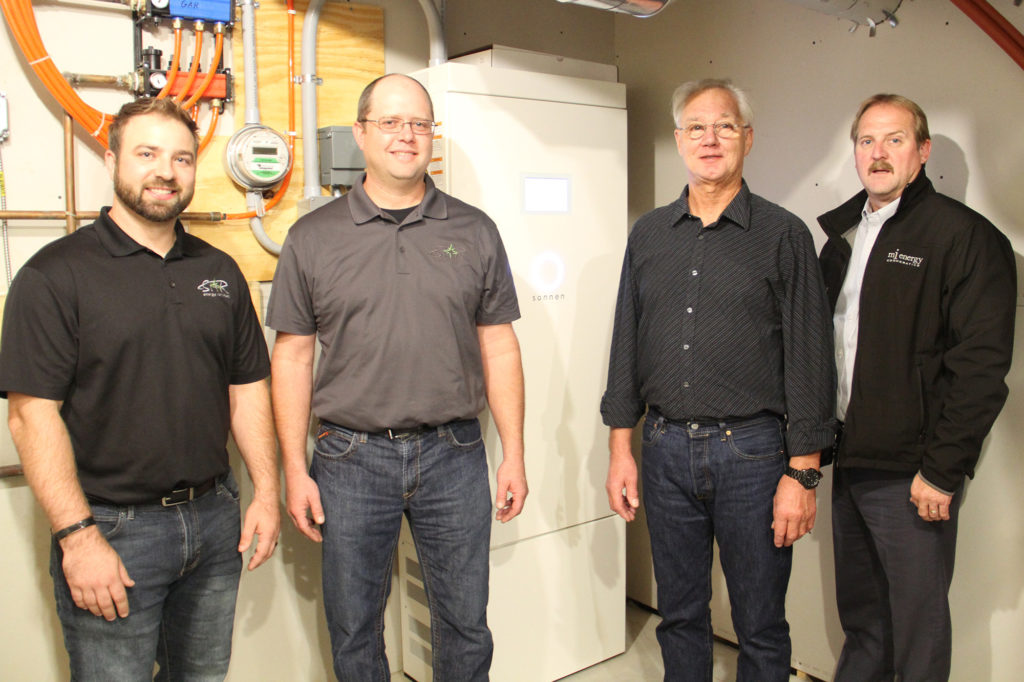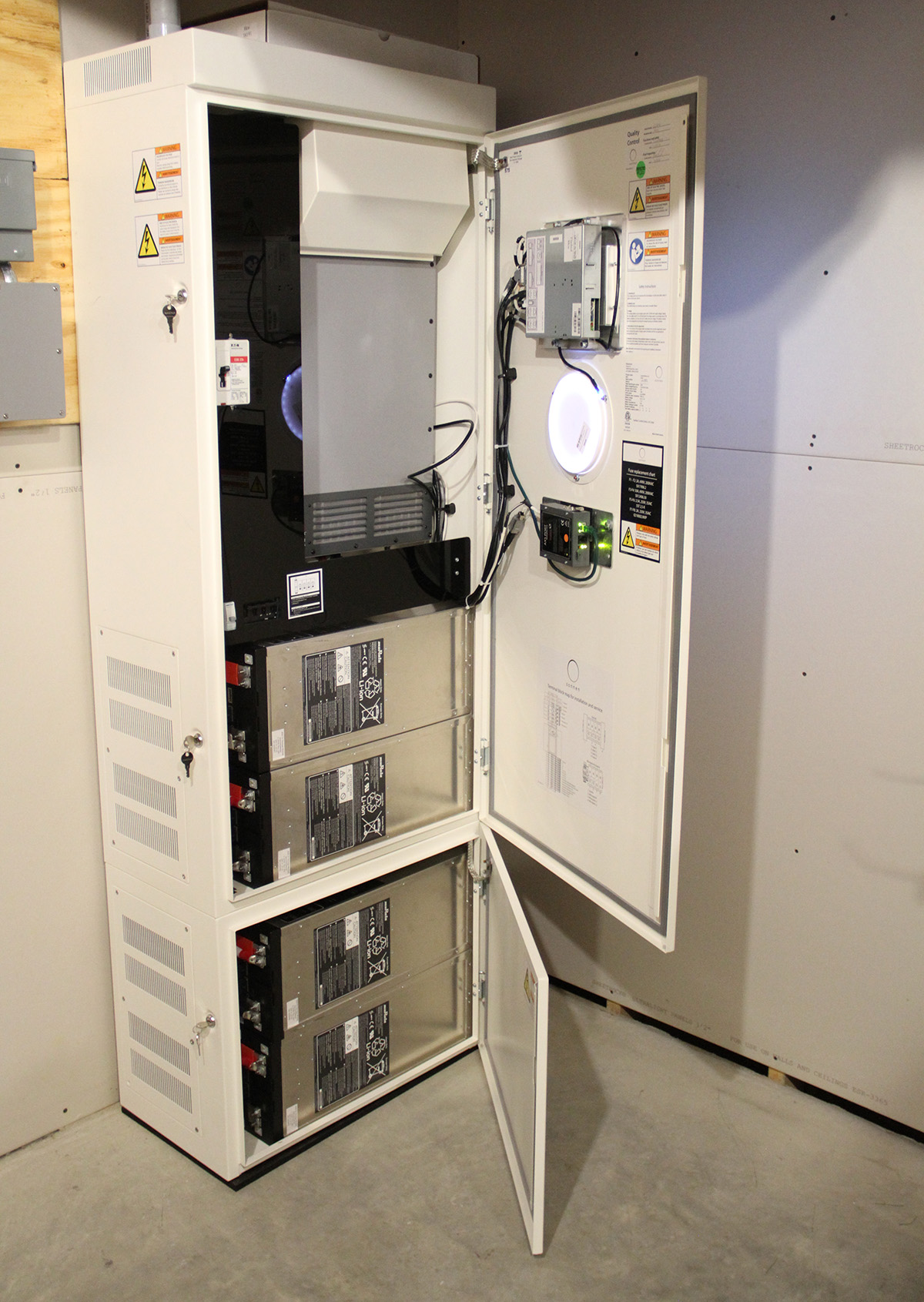
Can small-scale, distributed storage be used effectively for energy management?
Four Midwest distribution cooperatives are looking for the answer to that question with a new pilot program that will place batteries in members’ homes.
“This is an opportunity to learn more about the future of battery technology and how to use it in our distribution system and how to benefit our members,” said Brian Krambeer, CEO of Rushford, Minnesota-based MiEnergy, one of the program participants.
The co-ops will install 16-kilowatt-hour controllable electric energy storage (EES) systems at 10 residential and small commercial consumer sites and use them to test things like their effectiveness in shedding load, the impact of time-of-use rates, and the value of substation storage versus residential storage. In addition, members hosting the storage units can deploy them for emergency backup power.
“The scope of the program is to monitor EES systems and use collective experience to determine the viability of various system strategies in a changing rural utility industry,” said Mike Casper, CEO of Jo-Carroll Energy in Elizabeth, Illinois, another one of the co-ops in the pilot. “Then the program will utilize the distribution cooperative experience to develop optimized programs that incorporate EES.”
MiEnergy Cooperative kicked off the project Oct. 15, commissioning the first system in a member’s house in Minnesota City, Minnesota. The co-op installed a second unit in a residence in Winona, Minnesota, and will commission two others at member homes in Decorah and Ridgeway, Iowa, in November.
“We are testing to see how switching a home’s electricity source from the grid to a battery and back can help manage electricity during peak periods,” said Brenda Tesch, director of public relations at MiEnergy. “We want to be able to understand residential battery technology on a small scale.”
Jo-Carroll, Richland Electric Cooperative, in Richland Center, Wisconsin, and Oakdale Electric Cooperative, in Oakdale, Wisconsin, plan to install two battery systems each in their service territory by year’s end. The four participating co-ops are served by Dairyland Power in La Crosse, Wisconsin.
NRECA’s Business and Technology Strategies (BTS) group is sponsoring the pilot, which grew from discussions between the co-ops, NRECA and the National Rural Telecommunications Cooperative at NRECA’s 2018 Annual Meeting in Nashville.
BTS is working with these co-ops and others, including North Carolina Electric Membership Corporation, Anza Electric Cooperative and Cordova Electric Cooperative, to create guidelines, case studies and reference materials to help co-ops that are weighing their energy storage options.
MiEnergy solicited co-op volunteers for the pilot at its annual meeting and in its newsletter and got a strong response.
“From that list, we selected sites based on a variety of criteria, some of which included broadband internet access, which is necessary for the battery unit to communicate, and the space necessary for actual installation,” Tesch said.
The batteries are made by Atlanta-based Sonnen, which is also providing training and technical support for the project.
Cathy Cash is a staff writer for NRECA.
Read More:
